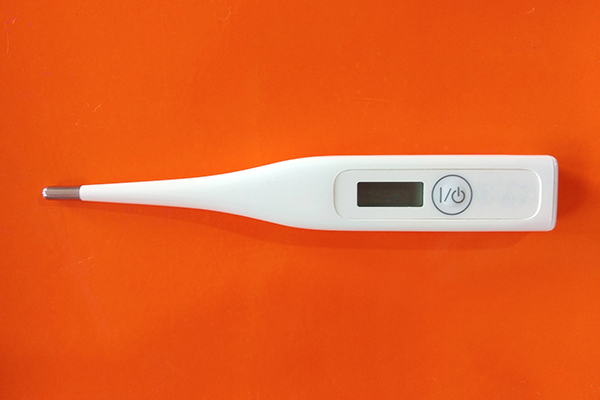Language has incredible power. Especially in a time of crisis.
The language of war has become the default setting during the pandemic.
But do we want our homes and hospital wards to become the 21st century trenches or Normandy beaches?
Health and social care services are (and should be) services that heal, care and support people to be as well as possible and live life to its fullest. The language that is used around this is often that of kindness, empathy, tenderness and humanity.
But with the onset of Covid-19, even health and social care has seen military language used:
- Workers on ‘the frontline’
- ‘Battling’ and ‘fighting’ the disease
- Bravery and ‘heroes’
This might seem innocuous. But the impact of this sort of language ripples out across the sector. It affects not only the people working in health and social care, but people who access care and support from it.
War language might lead people to have the same expectations as you see in war:
- Those on the frontline are inevitably caught in the crossfire
- There’s an expectation of civilian death
- There must be some sacrifice, so that more can survive
Here’s an example of how it plays out. You might hear people who have died due to Covid-19 as having “underlying conditions”. This can be a medical fact, but it can also be used to play down the tragedy of the death – for those trying to minimise the reality or to somehow ‘write off’ these deaths as ‘necessary’ to ‘win’.
There is evidence of people who have long term conditions or disabilities not receiving the care and support they would normally be able to access. This was made legal under the Coronavirus Act. Do the war metaphors encourage us to think of this as ‘collateral damage’?
Another example is hospital visits. There is growing evidence of reduced admissions to hospital and attendances at A&E for non-Covid-19 conditions. People are becoming afraid to go to hospitals, no longer seeing them as places of safety but of danger.
One reason for this is how hospitals are consistently being presented to the public – as ‘war zones’ with staff needing specialist protective equipment to be able to survive them. One result of this trend are increasing numbers of deaths at home from stroke and heart attacks.
All of this could have significant implications for the future. How do we build a bridge from this war-like language to a future that is about kindness, mutuality, care, equality and all lives being of value?
This sort of language presents a risk that positive developments that take place during the crisis will be left behind as ‘relics of war’ - just needed during the crisis instead of requirements for service.
If we look at the increase to funding for social care, it’s a small drop in comparison to the years of underfunding.
If we use the war metaphor, the extra funding becomes just a tool to defeat Covid-19, not a building block for a improved system in the future.
At the RSA we are looking at how we harness the agility and resilience of health and social care to help shape the future to ensure it becomes a stronger part of a wider complex system that works for the benefit of us all.
This shouldn’t be seen as a second-order issue. If we don’t think about how we talk about things now, we risk normalising language that places a lower value on human life. And that’s no place to start building a bridge to better healthcare.
Join our community and help shape change in a post-covid world.
Related articles
-
How health and social care is adapting to the COVID-19 crisis
Ruth Hannan
The system is too rigid to respond rapidly. We must make sure that the sacrifices staff are making now aren’t in vain.



Join the discussion
Comments
Please login to post a comment or reply
Don't have an account? Click here to register.
To be honest, the language of war is commonplace in the health care, and it only has become more apparent with the Pandemic
Very interesting piece. I completely agree that use of “war” should be avoided in this pandemic. It is too combative and not helpful when trying to reassure a fearful public. The expression “fight or flight” however I believe is very common parlance when individuals are struggling with a critical health issues? For the other militaristic language, it is in common use in other sectors so it will be a challenge to decouple, but all points are well made in the context of the healthcare sector.
Enjoyed reading. Hope more get a chance to view this. Use of Language is so important
Hi Ruth, I enjoyed your piece on war metaphor very much. I thought you may be interested in an international initiative I am part of - #ReframeCovid - to collect alternatives to the war metaphor for Covid-19 in different languages. You can read a little about it here: https://www.lancaster.ac.uk/news/beyond-the-battle-far-from-the-frontline-a-call-for-alternative-ways-of-talking-about-covid-19 And this is where were are crowd-sourcing alternative metaphors. Elena Semino
The Lancaster link is helpful, thanks. We mustn't lose sight of the benefits of warlike metaphors. They suggest threat and danger, solidarity and the need to be resilient, and the need to respond quickly to something that is immediate. Yes, they also suggest innocent losses, but that's exactly what we have seen sadly with Covid19.
People use metaphors for everything so, as the Lancaster work points out, if not these metaphors, then which metaphors? If we can find other ideas that are equally effective in reflecting the challenges of having to take action to protect those at harm from an admittedly external force, but in a context where our own actions can make a real difference, then let's talk about them.
It is also the case that some are using the specific, extraordinary challenge of Covid19 to draw general conclusions about how healthcare should be funded in more normal times. A critic might describe this as cynical.
Excellent, there is an even bigger problem called the securitization of politics that I detail in the following article.
https://ceeep.mil.pe/2020/04/09/peru-analisis-prospectivo-de-la-securitizacion-de-la-politica-generado-por-el-covid-19-y-los-impactos-en-la-sociedad/